Probate Lawyer in Miami, Florida
Trusted and Experienced Probate Attorney
Free consultation 24/7
Got a Problem? Consult With Us
For Assistance, Please Give us a call or schedule a virtual appointment.
Recognition






Morgan Legal Group PLLP: Premier Probate Firm in Miami, Florida
Access our law-driven legal consultation from our qualified Probate Lawyers in Miami
Estate Planning Attorney Miami – Serving Miami Area. Are you considering the creation of a will to protect your assets, looking to appoint a guardian for your children, or facing estate litigation challenges? Perhaps you’re exploring strategies to ensure your children’s inheritance is secure? Regardless of the legal circumstances you’re navigating, having a proficient and qualified attorney at your side is essential. At Morgan Legal Group PLLP, located in Miami, we are renowned for our team of seasoned and adept attorneys specializing in estate planning, estate litigation, wills and trusts, probate, asset protection, guardianship, elder law, and power of attorney.
Our primary commitment is to deliver exceptional assistance to our clients within the legal boundaries, efficiently resolving their legal matters and shielding them from potential litigation complexities. The attorneys at Estate Planning Lawyers Miami possess comprehensive knowledge of the latest laws, rules, and regulations governing intestate succession and estate taxes, both within Miami’s Surrogate Court and across international jurisdictions.
Holistic Estate Planning Solutions:
Experienced and Knowledgeable Attorneys:
Client Satisfaction and Results:
Legal Confidence. Your Protection.

Morgan Legal Group PLLP: Premier Miami Estate Planners
Pinnacle of Excellence in Estate Planning in Miami
Embarking on a legal journey across diverse jurisdictions, whether it entails sculpting an airtight estate plan, forging wills and trusts, designating guardians for minors, shielding cherished family legacies, or delving into the intricacies of elder law, can pose formidable challenges. This rings especially true for individuals navigating these terrains without the armor of legal expertise.Experience and Expertise:
With a legacy spanning decades of specialized experience in estate planning, our firm has forged remarkable expertise. Our highly skilled attorney team boasts an intimate understanding of the intricate laws, regulations, and practices governing estate planning in Miami. This profound experience empowers us to adeptly navigate the complexities of the legal landscape with precision and efficiency.Tailored Solutions:
Recognizing the unique tapestry of each client’s estate planning needs, we don the mantle of personalization. Our approach crafts bespoke solutions that beautifully align with our client’s goals and objectives. Our attorneys collaborate closely with clients, delving deep into their individual circumstances to formulate comprehensive strategies that cater to their specific requirements.Commitment to Client Satisfaction:
Client satisfaction is etched into the core of our practice. We exceed expectations to ensure our clients revel in the highest echelons of service quality and unwavering support through their estate planning odyssey. Our devoted team remains perpetually accessible, poised to address concerns, offer guidance, and proffer expert counsel at every step. We prioritize crystal-clear communication, transparency, and prompt responsiveness to cultivate relationships of trust that stand the test of time.Comprehensive Service Offering:
Our firm opens the door to a rich tapestry of estate planning services to accommodate a multitude of client exigencies. From wills and trusts to probate guidance, asset safeguarding, orchestrating guardianship, untangling the web of elder law, and beyond, we present a pantheon of comprehensive solutions under one roof. This comprehensive suite empowers clients to rely on us as the sole sanctuary catering to all their estate planning needs.Track Record of Success:
Over the course of time, Morgan Legal Group PLLP has etched an indelible trail of triumph in aiding clients toward their estate planning aspirations. Our steadfast commitment to delivering positive outcomes and bestowing peace of mind upon a multitude of satisfied clients speaks volumes of our proficiency and resolute dedication. Our prowess in consistently securing favorable results is a badge of honor we wear with immense pride.How we work:
Client-Centric Estate Planning Approach
Estate Planning Excellence: Miami’s Pinnacle
At Morgan Legal Group PLLP, strategically nestled within the vibrant city of Miami, we embrace an ethos of meticulousness while centering our approach around our valued clients. Our modus operandi ensures that each client experiences personalized attention, comprehensive solutions, and a seamless journey throughout the intricate landscape of the estate planning process.
Individualized Guidance:
In acknowledging the tapestry of uniqueness woven into each client’s circumstances and aspirations, our seasoned team invests significant time in delving deep into their specific needs and objectives. Our provision of individualized guidance hinges on considering the nuances of family dynamics, financial situations, and personal preferences. This intricate understanding empowers us to tailor our services, extending bespoke solutions that meet and exceed their requirements.
Collaborative Process:
We espouse wholeheartedly the potency of collaboration. Our adept attorneys weave a tapestry of openness and transparent communication as they closely collaborate with our clients. Our clients’ voices matter deeply, and we actively involve them in the decision-making journey. This symbiotic relationship creates an environment where clients are informed and empowered and play an integral role in shaping the contours of their estate plans.
Thorough Analysis and Planning:
Our team unfurls a comprehensive canvas for scrutinizing clients’ assets, liabilities, and legal obligations. Every aspect is meticulously examined as we uncover potential risks and unearth opportunities for asset fortification, tax optimization, and the hallowed preservation of wealth. This rigorous process lays the foundation for crafting robust, custom-tailored estate plans. Each plan is artfully designed to seamlessly align with clients’ aspirations while adhering to legal stipulations and anticipating unforeseen contingencies.
Clear and Transparent Communication:
We fully grasp the vital role that transparent communication plays in nurturing trust and ensuring client satisfaction. Our mission is to demystify complex legal tenets, rendering them in a language that is lucid and accessible. By so doing, we empower our clients to grasp the full spectrum of their options and the ramifications of their choices. This commitment to clear communication is further underpinned by our proactive approach to sharing updates, addressing queries, and promptly mitigating concerns.
Attention to Detail and Accuracy:
Estate planning unfurls in the realm of precision and exactitude. Our team is committed to ensuring the utmost accuracy in all legal documentation and the intricate execution of estate plans. Our modus operandi includes meticulous reviews and exhaustive cross-checking of every minute detail. By minimizing the potential for errors or oversights, our dedication to precision fosters unshakeable confidence within our clients regarding the efficacy and validity of their meticulously-crafted estate plans.
Ongoing Support and Review:
Our client relationships extend far beyond the initial phases of estate planning. We are staunch advocates of perpetual support and advocate regular reviews of estate plans. These reviews are designed to accommodate the ever-evolving tapestry of personal circumstances, familial dynamics, and shifts in legal requisites. Our paramount objective is to nurture enduring peace of mind by ensuring that estate plans remain in perpetual alignment with clients’ evolving needs.
The crux of our operational philosophy lies in individualized guidance, collaborative synergies, exhaustive analysis and strategic planning, transparent communication, a penchant for precision, and steadfast ongoing support. Through the harmonious embodiment of these principles, we strive to impart exceptional service, bespoke solutions, and an excellent pinnacle of client satisfaction in every facet of our estate planning engagements.
1. Communication with the client.
Every day, our experts are ready to advise you for free!
2. Problem analysis
After providing legal advice and analysis of your documents.
3. Performance of work
The work process of our company’s specialists is based on complete transparency and constant informing of the client.
4. Positive result
After the court has satisfied your claims
5. Your rating, our work
Then we deliver the specified documents to you at a convenient time for you
Contact us
Pinnacle of Excellence in Estate Planning in Miami
Embarking on a legal journey across different jurisdictions, whether it involves architecting an airtight estate plan, establishing wills and trusts, designating guardians for minors, safeguarding the legacy of family heritage, or delving into the nuances of elder law, can pose formidable challenges. This holds particularly true for individuals navigating these complex terrains without the shield of legal expertise.
Decades of Expertise:
With a storied presence spanning decades in estate planning, our reputable establishment, Estate Planning Lawyers Miami, stands as a beacon. Our name resonates with the promise of top-tier legal counsel across a broad spectrum of services: estate planning, estate litigation, wills and trusts, probate intricacies, safeguarding assets, guardianship matters, navigating the complexities of elder law, facilitating power of attorney, and an array of additional crucial legal aspects. When the need for steadfast legal assistance arises, our esteemed firm emerges as your reliable fortress. Here, our proficient attorneys stand committed to expediently untangling your legal matters.
Rest assured, the experience and adeptness of our seasoned lawyers shall skillfully steer you through the labyrinthine intricacies of your case. This journey ensures the provision of optimal legal solutions, artfully tailored to suit your unique circumstances. Reach out today and unearth swift resolutions that usher in tranquility amidst your legal concerns.
Get in Touch
FAQ
Understanding Probate in Miami: A Comprehensive Guide
Probate is a legal process that takes place after a person’s death to validate their will, settle their debts, and distribute their assets to beneficiaries. It is a crucial step in the estate administration process and ensures that the deceased person’s wishes are carried out according to the law. In Miami, Florida, as in other jurisdictions, probate plays a significant role in the transfer of assets and property after an individual’s passing. In this comprehensive guide, the experienced attorneys at Morgan Legal Group PLLP in Miami provide insights into the probate process, its implications, and how to navigate it effectively.
The Probate Process in Miami
The probate process in Miami involves several key steps, including:
1. Filing the Will
If the deceased person left a valid will, it must be filed with the probate court in the county where they resided. The court will review the will to ensure its validity and authenticity.
2. Appointing an Executor
If the will names an executor, the court will appoint that person to oversee the probate process. If there is no named executor or the named person is unable or unwilling to serve, the court will appoint an administrator.
3. Notifying Creditors and Beneficiaries
The executor or administrator is responsible for notifying creditors of the deceased person’s death and providing them with an opportunity to file claims against the estate. Beneficiaries named in the will must also be notified of the probate proceedings.
4. Inventory and Appraisal
The executor or administrator must compile an inventory of the deceased person’s assets, including their real estate, personal property, and financial accounts. This may involve obtaining appraisals of certain assets to determine their value.
5. Settling Debts
Before distributing assets to beneficiaries, the estate’s debts and expenses must be settled. This includes paying off outstanding debts, taxes, and administrative costs.
6. Distributing Assets
Once debts are settled, the remaining assets can be distributed to the beneficiaries according to the terms of the will. If there is no will, Florida’s intestate laws will dictate how assets are distributed to heirs.
The Implications of Probate
Probate has several implications for the estate administration process:
- Time: Probate can be a time-consuming process, often taking several months to a year or more to complete.
- Cost: Probate involves court fees, attorney fees, and administrative expenses, which can impact the value of the estate.
- Privacy: Probate proceedings are a matter of public record, which means that details of the estate’s assets, debts, and beneficiaries become accessible to the public.
- Complexity: The probate process can become complex, especially if there are disputes among beneficiaries or challenges to the validity of the will.
Seeking Legal Assistance in Miami
Given the complexities and potential challenges associated with the probate process, seeking legal assistance is highly advisable. An experienced probate attorney in Miami can provide valuable guidance, ensure compliance with legal requirements, and help streamline the process for a smoother estate administration. At Morgan Legal Group PLLP in Miami, our skilled attorneys have a deep understanding of Florida’s probate laws and can assist you in navigating the probate process efficiently and effectively.
Conclusion
Probate is a critical aspect of estate administration in Miami, Florida, ensuring that a person’s assets are distributed in accordance with their wishes and the law. While the probate process can be intricate and time-consuming, enlisting the support of an experienced probate attorney can make the journey smoother and less overwhelming. Contact Morgan Legal Group PLLP in Miami today to receive expert legal guidance for all your probate-related needs and ensure the proper administration of your loved one’s estate.
Understanding the Rules for Probate in Miami, Florida
The probate process is an essential legal procedure that takes place after an individual’s passing to validate their will, settle their debts, and distribute their assets to beneficiaries. In Miami, Florida, as in other jurisdictions, the probate process is subject to specific rules and regulations outlined by the state’s laws. In this comprehensive guide, the experienced attorneys at Morgan Legal Group PLLP in Miami provide insights into the rules and requirements for probate in Miami, ensuring that you have a clear understanding of the process and can navigate it effectively.
The Legal Framework for Probate in Miami
The rules for probate in Miami are primarily governed by Florida’s Probate Code, which is outlined in the Florida Statutes, Chapter 731 to 735. These statutes provide a comprehensive framework for the probate process, covering various aspects such as wills, administration of estates, appointment of personal representatives, and distribution of assets.
Key Rules and Requirements
Understanding the rules and requirements for probate in Miami is crucial for both individuals planning their estates and those involved in the estate administration process. Here are some key rules to be aware of:
1. Filing the Will
The deceased person’s will must be filed with the appropriate probate court in Miami. The court will review the will to ensure its validity and authenticity. If there are any challenges to the will’s validity, a formal will contest may ensue.
2. Jurisdiction
The probate proceedings must take place in the county where the deceased person resided at the time of their death. If the deceased had property in multiple counties, ancillary probate proceedings may be required in those counties as well.
3. Appointment of Personal Representative
The personal representative, also known as the executor, is responsible for overseeing the probate process. If the deceased person left a valid will, the court will appoint the person named as the executor. If there is no will or no named executor, the court will appoint an administrator.
4. Notice to Creditors and Beneficiaries
Once the personal representative is appointed, they are required to notify creditors of the deceased person’s death. Creditors have a specific period to file claims against the estate. Beneficiaries named in the will must also be notified of the probate proceedings.
5. Inventory and Appraisal
The personal representative is responsible for creating an inventory of the deceased person’s assets, including real estate, personal property, and financial accounts. Some assets may require professional appraisals to determine their value accurately.
6. Debts and Expenses
Before distributing assets to beneficiaries, the personal representative must settle the deceased person’s debts and expenses. This includes paying off outstanding debts, taxes, administrative fees, and any funeral expenses.
7. Distribution of Assets
Once debts are settled, the remaining assets can be distributed to beneficiaries according to the terms of the will. If there is no will, Florida’s intestate succession laws will dictate how assets are distributed among heirs.
Importance of Legal Assistance
Given the complexity of the probate process and the specific rules that must be followed, seeking legal assistance is highly recommended. An experienced probate attorney in Miami can provide valuable guidance, ensure compliance with the rules, and help expedite the process.
Conclusion
The rules for probate in Miami, Florida, are designed to ensure the orderly distribution of a deceased person’s assets and the settlement of their debts. Understanding and adhering to these rules are essential to a successful probate process. If you require assistance with probate matters in Miami, the skilled attorneys at Morgan Legal Group PLLP are here to provide expert guidance and legal support. Contact us today to navigate the probate process with confidence and ease.
Strategies to Avoid Probate in Miami, Florida
Probate is a legal process that validates a will, settles a deceased person’s debts, and distributes their assets. While probate serves a crucial purpose, many individuals in Miami seek ways to avoid it due to its time-consuming nature and potential costs. Fortunately, there are various strategies available that can help you bypass the probate process and ensure a smoother transfer of assets to your loved ones. In this comprehensive guide, the experienced attorneys at Morgan Legal Group PLLP in Miami provide insights into effective strategies to avoid probate in Miami, enabling you to make informed decisions about your estate planning.
Understanding Probate and Its Challenges
Probate is a court-supervised process that involves validating a deceased person’s will, identifying their assets, settling outstanding debts, and distributing the remaining assets to beneficiaries. While probate is a necessary step to ensure the legal transfer of assets, it can be a lengthy and expensive process. Some common challenges associated with probate include:
- Lengthy timelines: Probate proceedings can take months or even years to complete, delaying the distribution of assets to beneficiaries.
- Costs: Probate can be costly due to court fees, attorney fees, appraiser fees, and other expenses.
- Lack of privacy: Probate proceedings are public, which means the details of the estate become part of the public record.
- Potential for disputes: Probate can lead to family conflicts and disputes over assets, particularly if there are challenges to the will’s validity.
Effective Strategies to Avoid Probate
If you’re looking to avoid probate in Miami, there are several strategies you can consider:
1. Establishing a Revocable Living Trust
A revocable living trust is a legal entity that holds your assets during your lifetime and can continue to hold them after your passing. By transferring your assets to the trust, you retain control while avoiding probate. Upon your death, the assets are distributed to your chosen beneficiaries without the need for probate.
2. Naming Beneficiaries
For assets such as retirement accounts, life insurance policies, and payable-on-death bank accounts, you can designate beneficiaries. Upon your death, these assets are directly transferred to the named beneficiaries, bypassing probate.
3. Owning Property Jointly
Joint ownership of property, especially with rights of survivorship, allows the property to automatically transfer to the surviving owner upon your passing. This strategy is commonly used for real estate and bank accounts.
4. Using Transfer-on-Death (TOD) Designations
Similar to naming beneficiaries, TOD designations can be used for securities, stocks, and brokerage accounts. The assets are transferred to the designated beneficiaries upon your death without going through probate.
5. Gifting Assets During Your Lifetime
You can gift assets to your loved ones during your lifetime, which reduces the overall value of your estate subject to probate. However, there are gift tax considerations to be aware of.
6. Creating a Lady Bird Deed
A Lady Bird deed, also known as an enhanced life estate deed, allows you to retain control of your property during your lifetime while designating a beneficiary to receive the property upon your death. This can help avoid probate for real estate.
7. Using Small Estate Affidavits
If the value of your estate is relatively small, you may be able to use a small estate affidavit to transfer assets to beneficiaries without a formal probate process. This option is available under certain circumstances.
Importance of Legal Assistance
While these strategies can be effective, it’s important to seek legal assistance when considering probate avoidance. An experienced estate planning attorney in Miami can help you choose the strategies that best fit your individual circumstances, ensuring that your assets are protected and your wishes are carried out accurately.
Conclusion
Avoiding probate in Miami is a goal for many individuals seeking to simplify the asset transfer process and minimize costs. By exploring these various strategies, you can make informed decisions about your estate planning that align with your goals. For personalized guidance and legal support, the skilled attorneys at Morgan Legal Group PLLP are here to assist you every step of the way. Contact us today to navigate the probate avoidance process effectively and ensure a smooth transfer of your assets to your loved ones.
The Cost of Probate in Miami, Florida: Factors to Consider
Probate is a legal process that involves validating a deceased person’s will, identifying their assets, settling debts, and distributing remaining assets to beneficiaries. While probate serves an essential purpose, many individuals in Miami are concerned about the potential costs associated with the process. In this detailed guide, the experienced attorneys at Morgan Legal Group PLLP in Miami provide insights into the factors that influence the cost of probate in Miami, helping you make informed decisions about your estate planning.
Understanding Probate Costs
Probate costs can vary significantly based on several factors. It’s important to note that probate expenses typically come from the estate itself and not from the personal funds of beneficiaries or family members. The following are common elements that contribute to the overall cost of probate:
1. Court Fees
Probate involves filing various documents with the court, each of which may incur a filing fee. These fees can add up, especially if multiple documents are required during the probate process.
2. Attorney Fees
Attorney fees can be a significant portion of probate costs. Attorneys typically charge based on an hourly rate or a percentage of the estate’s value. Complex estates or contested matters may require more legal work, leading to higher fees.
3. Personal Representative Fees
The personal representative, also known as the executor or administrator, is responsible for managing the probate process. In some cases, they may be entitled to receive a fee for their services, which is typically a percentage of the estate’s value.
4. Appraisal and Valuation Fees
Appraisals may be necessary to determine the value of the estate’s assets, especially if there are valuable or unique items. Appraisers may charge a fee for their services.
5. Publication Costs
In some cases, it’s required to publish notices to creditors in local newspapers. These publication costs can contribute to the overall expenses of probate.
6. Miscellaneous Costs
Other expenses can arise during the probate process, such as document preparation fees, mailing costs, and travel expenses.
Factors Influencing Probate Costs
The cost of probate can vary based on a range of factors, including:
Estate Complexity
The complexity of the estate can impact the amount of legal work and time required for the probate process. Estates with numerous assets, debts, or beneficiaries may incur higher costs.
Estate Value
The overall value of the estate plays a role in determining certain fees, such as attorney fees and personal representative fees.
Disputes or Contests
If beneficiaries or family members contest the will or other aspects of the estate, additional legal work may be required, leading to increased costs.
Real Estate Ownership
Probate costs can be influenced by whether the estate includes real estate properties. Real estate assets may require appraisals and additional legal procedures.
Minimizing Probate Costs
While some probate costs are unavoidable, there are strategies you can consider to help minimize expenses:
Estate Planning
Engaging in comprehensive estate planning can help ensure that your assets are organized and distributed efficiently, potentially reducing legal work and costs during probate.
Using Revocable Living Trusts
Establishing a revocable living trust allows you to transfer assets to the trust, potentially avoiding probate altogether. This can also help minimize associated costs.
Choosing the Right Attorney
Working with an experienced probate attorney in Miami can help you navigate the process efficiently and avoid unnecessary expenses.
Conclusion
The cost of probate in Miami can vary based on several factors, including the complexity of the estate, its value, and any potential disputes. While some expenses are unavoidable, strategic estate planning and legal guidance can help minimize costs and ensure a smooth probate process. For personalized assistance and expert insights, the skilled attorneys at Morgan Legal Group PLLP are here to support you every step of the way. Contact us today to learn more about probate costs in Miami and how to best protect your assets and wishes.
Expert Probate Lawyer in Miami: Navigating the Probate Process with Confidence
When facing the complexities of the probate process, having an experienced probate lawyer in Miami by your side can make all the difference. At Morgan Legal Group PLLP, located in the heart of Miami, we understand that dealing with probate matters can be overwhelming and emotionally taxing. With our dedicated team of probate attorneys, we’re here to provide you with the knowledge, guidance, and support you need during this challenging time.
Why You Need a Probate Lawyer
Probate is a legal process that occurs after a person passes away, involving the validation of their will, inventorying their assets, paying debts, and distributing remaining assets to beneficiaries. While probate is designed to ensure a fair and orderly distribution of an estate’s assets, it can be a complex and time-consuming journey. This is where an experienced probate lawyer can be an invaluable asset.
Here are some reasons why having a probate lawyer in Miami is essential:
1. Expert Guidance
Probate laws and regulations can be intricate and vary from state to state. An experienced probate lawyer is well-versed in the legal complexities and can provide you with expert guidance throughout the entire process.
2. Document Preparation
Probate involves numerous legal documents that must be filed accurately and on time. A probate lawyer will ensure that all required documents are properly prepared and submitted, reducing the risk of delays or errors.
3. Asset Valuation
Valuating the assets of an estate is a crucial step in the probate process. A probate lawyer can help ensure that assets are accurately appraised, preventing undervaluation or overvaluation.
4. Debt Management
Outstanding debts must be settled before distributing assets to beneficiaries. A probate lawyer can help manage the payment of debts and navigate any potential creditor claims.
5. Conflict Resolution
Disputes among beneficiaries or challenges to the validity of the will can arise during probate. A skilled probate lawyer can help mediate conflicts and work towards amicable resolutions.
The Probate Process Explained
The probate process generally consists of the following steps:
1. Filing the Petition
The process begins by filing a petition with the appropriate court to open the probate case. This is usually done in the county where the deceased person resided.
2. Validating the Will
If there’s a will, the court must validate its authenticity. If there’s no will, the deceased person is said to have died “intestate,” and the court will determine how to distribute assets according to state law.
3. Inventorying Assets
All assets owned by the deceased person must be identified and documented. This includes real estate, bank accounts, investments, personal property, and more.
4. Paying Debts
Any outstanding debts and taxes owed by the estate must be settled before assets can be distributed to beneficiaries.
5. Distributing Assets
Once debts are paid, remaining assets can be distributed to beneficiaries according to the will or state law.
6. Closing the Estate
After all assets are distributed and debts are settled, the probate process concludes, and the estate is officially closed.
The Cost of Probate
One common concern individuals have about probate is the cost. Probate costs can vary based on factors such as the complexity of the estate, attorney fees, court fees, and more. Our skilled probate lawyers at Morgan Legal Group PLLP can provide you with a clear understanding of the potential costs associated with your specific case.
Choosing the Right Probate Lawyer in Miami
When selecting a probate lawyer in Miami, it’s crucial to consider their experience, reputation, and commitment to client success. At Morgan Legal Group PLLP, our dedicated team of probate attorneys has a proven track record of guiding clients through the probate process with professionalism and care.
Contact Morgan Legal Group PLLP Today
If you’re facing the probate process in Miami, don’t navigate it alone. Our experienced probate lawyers at Morgan Legal Group PLLP are here to provide you with the comprehensive legal support you need. From document preparation to asset distribution and conflict resolution, we’re committed to helping you navigate probate with confidence and ease. Contact us today to schedule a consultation and learn how we can assist you.
- Type of Probate: The type of probate being used can impact the timeline. Formal administration may take longer than summary administration, which is a faster and more streamlined process for smaller estates.
- Inventory and Appraisal: The process of taking an inventory of the deceased person’s assets and having them appraised can take time, especially if the estate includes complex or hard-to-value assets.
- Creditor Claims: During probate, creditors have a specified period to file claims against the estate. Resolving outstanding debts can extend the probate timeline, particularly if disputes arise regarding the validity or amount of the debts.
- Real Estate Transactions: If the estate includes real estate that needs to be sold, the process of marketing the property, finding buyers, and completing the sale can add time to the probate process.
- Beneficiary Disputes: Disputes among beneficiaries over the distribution of assets can significantly delay probate proceedings as the court may need to resolve these conflicts.
- Court Docket and Caseload: The efficiency of the probate court, the availability of court dates, and the overall caseload can impact how quickly the case progresses.
- Homestead Issues: If the decedent’s primary residence is part of the estate, the probate process may be extended due to the unique protections and requirements related to Florida’s homestead laws.
Recognition







